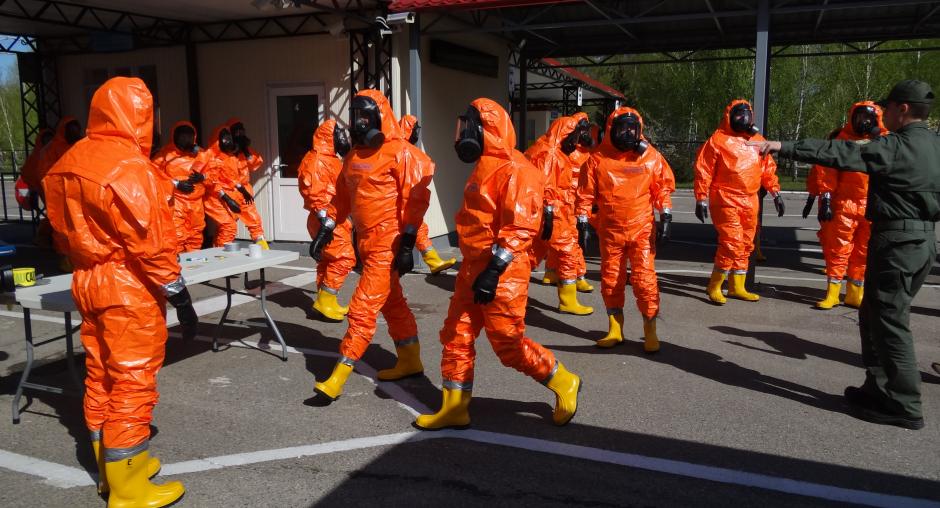OSCE helps Ukraine upgrade chemical safety and security systems

The OSCE Project Co-ordinator in Ukraine and the Forum for Security and Co-operation presented, on 5 February 2021, outcomes of three years of OSCE assistance to Ukraine in modernizing its system of protection from threats related to toxic and hazardous chemicals.
The projects, completed this month, focused on three key areas: the regulatory system, laboratory analysis capacity, and control over transboundary movement of chemicals.
“Ukraine is an industrially developed country, and that involves a number of risks, related to hazardous materials used by enterprises in production or moved across borders,” said Henrik Villadsen, OSCE Project Co-ordinator in Ukraine. “We should not forget about terrorists and criminals that may consider exploiting gaps in the chemical security system,” he said. “Finding and closing those gaps is an imperative for the safety of millions of people working in the industrial sector or even living in the vicinity of enterprises, and we hope that with our help Ukraine will be in a better position to address those threats.”
To help modernize a legal framework in this sphere, the OSCE assisted in developing a draft law on chemical safety and security, revising legislation on incident prevention at high-risk facilities, and two technical regulations – on safety of chemical products, and on their classification, labelling and packaging. Authorities published the four documents to gather stakeholder feedback prior to further approval.
In addition, drafts of 17 national standards for the handling of chemicals were elaborated. This is complemented by legal documents for the creation of a National Reference Center – a laboratory facility able to identify substances. The Center, established at the facilities of Medved’s Research Center of Preventive Toxicology, Food and Chemical Safety, also received equipment for precise, fast and reliable detection and identification of chemicals.
For enhancing border controls over movement of chemicals, the OSCE helped to develop a pilot training programme for the country’s border personnel, 100 border guards and customs service employees were trained in classrooms and through practical exercises. Both State Border Guards and State Customs Service received 60 sets for the quick identification of toxic materials at border crossing points.
These are the outcomes of the three projects the OSCE Project Co-ordinator in Ukraine and the OSCE Forum for Security and Co-operation implemented with the financial support of the European Union and the United States of America.
